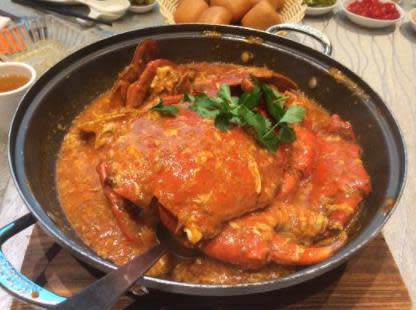SI Research: Jumbo Group – No More Jumbo Earnings?
We cannot do without food and beverages; food and beverages (F&B) cannot do without us – restaurant and food stall owners, that is. We are the customers and we make or break an F&B business. Just ask those restaurant owners who have been receiving one-star reviews on their Facebook pages for providing lousy food or bad service. Customers are the “true analysts” who know if a food business can survive in the long run or not.
It is a competitive and cut-throat industry that leaves no chance for F&B outlets that cannot get their act together. Be it at the shopping malls or hawker centers, the turnover rate is high.
In this write-up, we feature local seafood darling Jumbo Group (Jumbo) to delve into its investment merits, or if any at all.
The Eateries
According to its website, Jumbo operates five outlets in Singapore and four in China, excluding Singapore Seafood Republic, Chui Huay Lim Teochew Cuisine, JPOT, J Café, Ng Ah Sio Bak Kut Teh, J Catering and a Jumbo eShop.
The bulk of its revenue (83 percent) came from Singapore in 1H17 while the rest came from China. This is a very slight increase from FY16 when China contributed 15 percent to Jumbo’s total revenue. We are hoping that the management can provide some form of profit breakdown but none was announced. It would have given us a better understanding of its China operations as investors would want to know if they faced execution problems and, if any, have they dragged down the profitability?
From its presentation to analysts and fund managers, Jumbo saw an increase in contributions from Ng Ah Sio Bak Kut Teh as well as Chui Huay Lim Teochew Cuisine but we do note that revenue in 2Q17 was slightly lower than 2Q16; although revenue in 1H17 was slightly higher than 1H16. Since the Bak Kut Teh division and the Teochew cuisine division had an increase in their respective shares to Jumbo’s revenue, it could mean that the increase in revenue could be attributed to these two divisions while Jumbo’s main seafood business saw little or no growth.
Competition
In the seafood business, we have Jumbo, Nosignboard, MellBen, Uncle Leong and many other smaller players. We spoke to crab suppliers and was told that prices of crabs and seafood have been increasing hence not passing on the increase in cost to consumers could be hurtful to the bottom line.
Having said that, we continue to believe in the branding power of Jumbo. It is one of the few seafood-based restaurants in Singapore with a long history and has managed to entrench itself as a reputable restaurant. However, we do note that competition and a slack economy will affect its higher-end business hence it is likely that Jumbo’s earnings have been hurt by these factors.
We continue to believe that its strong brand name will enable the group to ride out this tough period given that tourists coming to Singapore are attracted by our twin treasures – Crabs and Bak Kut Teh.
While competition is intense in the seafood business, the Bak Kut Teh business faces an equally stiff competition. Ng Ah Sio Bak Kut Teh, who has a long and established history in serving the best Bak Kut Teh in town, has opened too many outlets that do not produce the same authentic taste that the outlet at Rangoon Road has been serving. There are also competitors like Rong Cheng, Founder’s Bak Kut Teh and Ya Hua that are fighting for consumer dollars within this segment.
Jumbo Earnings No More?
The competition has translated into a third quarter performance that did not endear itself to investors. The days of exponential growth prior to its initial public offering (IPO) seemed to have come to an end in 3Q17 when Jumbo reported a mere 6.4 percent increase in revenue while net profit fell marginally by 1.1 percent.
As a matter of fact, growth stalled as early as 1Q17 despite a 26.1 percent jump in net profit. In the first quarter, revenue only rose a mere 5.8 percent but profit jumped owing to cost reductions. This worried investors hence the share price, which started dropping in late January from a high of $0.79, fell further.
Adding more woes in the most recent third quarter results is the jump in operating lease expenses – a 24.5 percent jump – from $2.8 million to $3.5 million. This is a common problem faced by F&B operators in Singapore, suffering from a lackadaisical growth picture yet being hit by rising rental.
Jumbo has started to work with Food Panda and Deliveroo to mitigate the impact of higher operating lease expenses, but whether it works or not leaves much to be desired. Jumbo is considered a premium seafood operator unlike fast food outlets that can easily switch to a food delivery model.
Prospects
Jumbo has admitted that it expects a challenging year given the weak economic outlook coupled with pressure on operating costs and keen competition. We opine that it will be able to leverage on its brands and bank on overseas expansions as well as partnerships to drive growth.
However, it must be noted that the fall in Jumbo’s share price coincided with a period when the share price of F&B operators such as BreakTalk and Kimly suffered the same fate. Investors who are aware of the difficulties in the operating environment re-rated the industry as a whole and sold shares.
At $0.555 on 27 September, the trading price represents a hefty premium over its IPO price of $0.25. It is trading at a trailing 12-month price-to-earnings ratio of about 23 times and 5.5 times price-to-book. Investors are likely to have classified Jumbo as a growth stock hence the disappointment when its growth stalled. Although dividends are paid, the 1.9 percent yield is really nothing to shout about.
Jumbo Signature Chilli Crab

 Yahoo Finance
Yahoo Finance 

